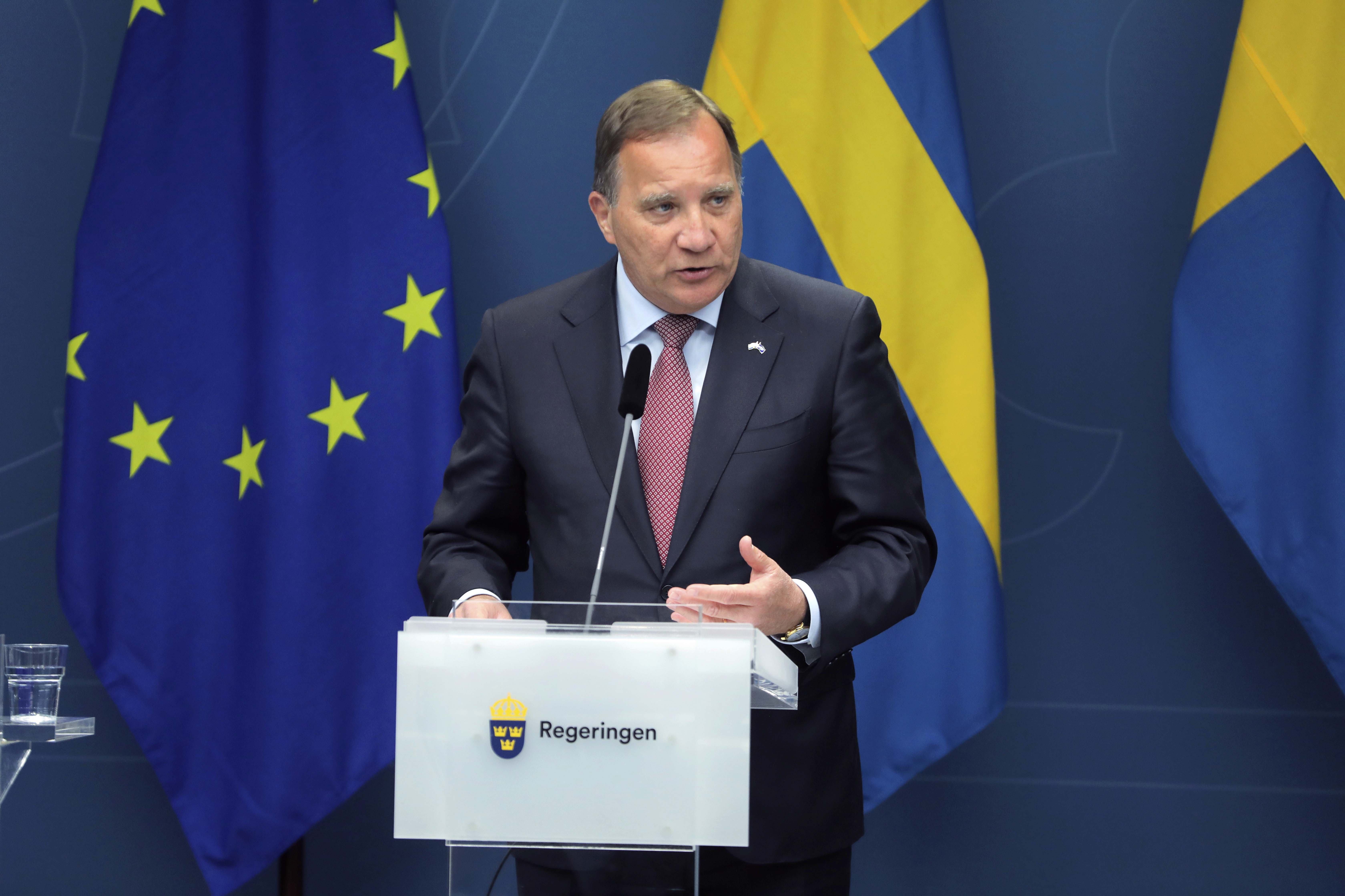
Jimmie Åkesson, leader of the far-right Sweden Democrats, said the government had been too slow to react to the crisis and when it did, it made serious errors.
“Misjudgements were made early on about how dangerous the virus was,” he told POLITICO. “The virus was allowed to spread.”
The flare-up underscored how opposition lawmakers have quickly shifted from “rallying ’round the flag” to distancing themselves from the government’s crisis response as the death rate from COVID-19 has spiked and voters have begun to lose faith in Sweden’s unique no-lockdown approach.
A survey by pollster Novus for the public service broadcaster SVT published late last week showed the share of respondents with “very or quite high confidence” in the government’s ability to handle the coronavirus plummeted to 45 percent in June from 63 percent in April.
At the same time, criticism of state epidemiologist Anders Tegnell and the Public Health Agency he represents has intensified as failures, particularly the spread of the coronavirus in elderly care homes, have become more apparent.
Tegnell has acknowledged that more should have been done to protect the elderly, but told POLITICO last week that he still felt Sweden’s lighter-touch approach — it has left schools and businesses open throughout the pandemic — was right.
Wednesday’s debate in parliament underscored how lawmakers have now joined critics in the scientific community who have long said Tegnell’s strategy of allowing the virus to spread slowly through society would lead to unnecessary deaths.
“The government should replace the general director of the Public Health Agency who can then appoint another state epidemiologist,” Åkesson of the Sweden Democrats said.
The sharper tone in Sweden, where parliamentary debates are normally fairly sedate affairs, reflects a broader European picture as governments are now being held to account by political opponents for decisions made in the heat of the pandemic.
In Spain, the truce only held until mid-April, while in Belgium, voters and opposition parties quickly turned on Prime Minister Sophie Wilmès.
Whether opposition lawmakers can sustain potentially damaging blows to their nations’ governments over coronavirus will depend on diverse streams of data — showing everything from death rates to impact on mental health to school results and economic output — which experts expect to be used to assess countries’ varying strategies over the months and years ahead.
For the moment, Swedish leaders are on the back foot.
The country’s death rate per million from COVID-19 remains below Europe’s worst-affected nations, such as the U.K. and Spain, but is now 10 times that of neighboring Norway and eight times that of Finland.
At the same time, surveys have suggested fewer Swedes have developed immunity to the disease than had been hoped, and other countries — from Denmark to the Czech Republic — have made clear Swedes aren’t welcome to visit this summer.
Still, the picture could change rapidly if immunity levels in Sweden quickly pick up — as state epidemiologist Tegnell still maintains they will — and Sweden dodges a feared second wave of COVID-19.
And even in those countries currently viewed as having been successful in the fight against the disease, experts caution that it is too early to decide who has done well and who has not.
“It is not the time to evaluate the outcome of an individual country’s approach,” Norway’s lead epidemiologist Frode Forland told POLITICO. “We are trying to work closely together between the Nordic countries to try and learn about and understand the situation and support each other as we try and tackle the pandemic.”
As he sought to defend his government’s approach, Swedish leader Löfven said during Wednesday’s debate that testing for coronavirus was being ramped up and hygiene routines were being improved through training within elderly care facilities.
“139,000 have been through training and now death rates are falling within elderly care too,” he said. “But every death is a tragedy.”
This article is part of POLITICO’s premium policy service: Pro Health Care. From drug pricing, EMA, vaccines, pharma and more, our specialized journalists keep you on top of the topics driving the health care policy agenda. Email [email protected] for a complimentary trial.
Source: politico.com
See more here: news365.stream






